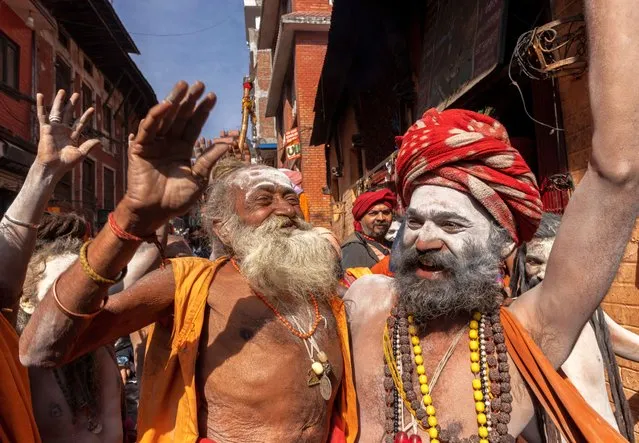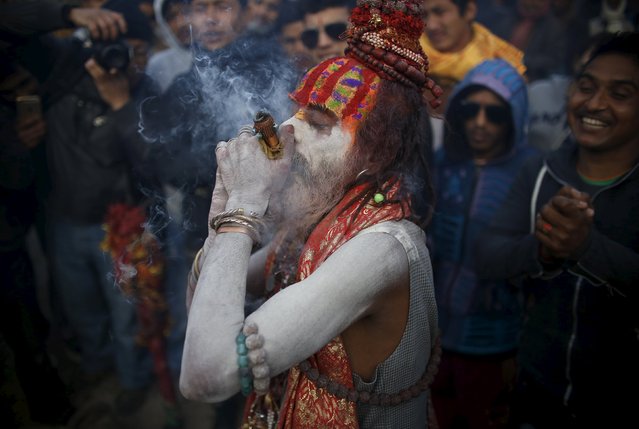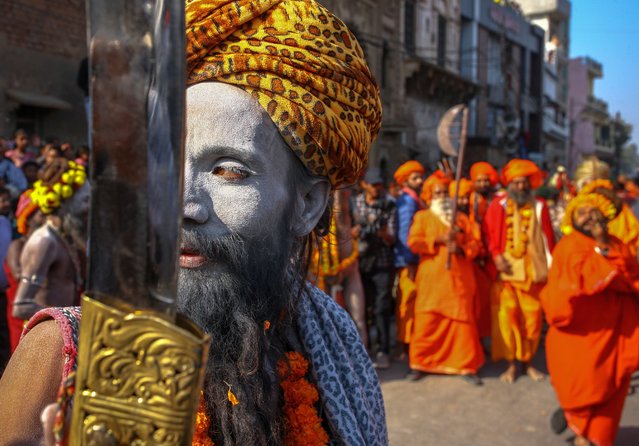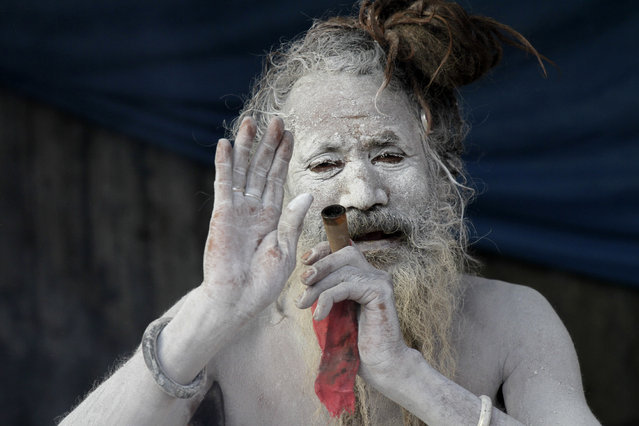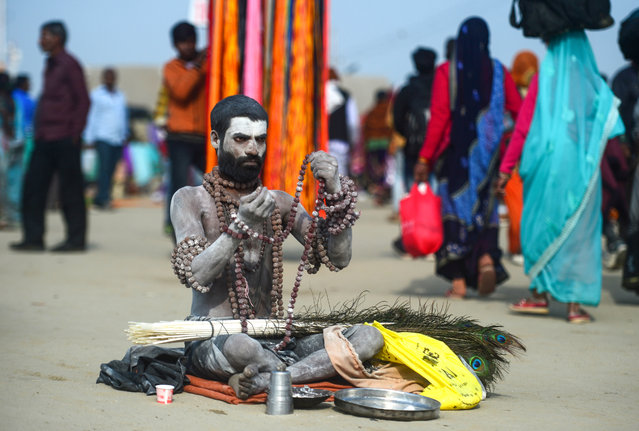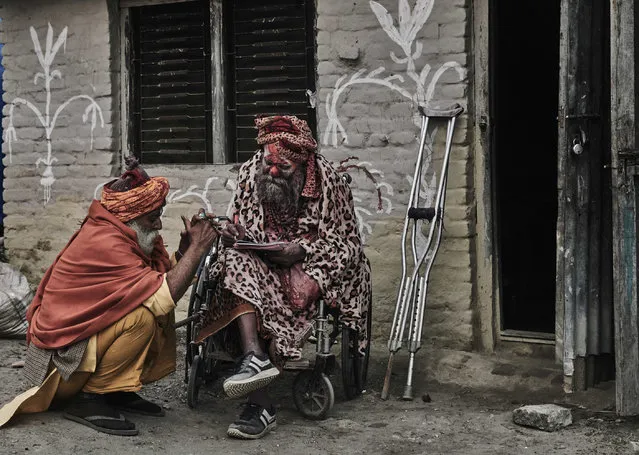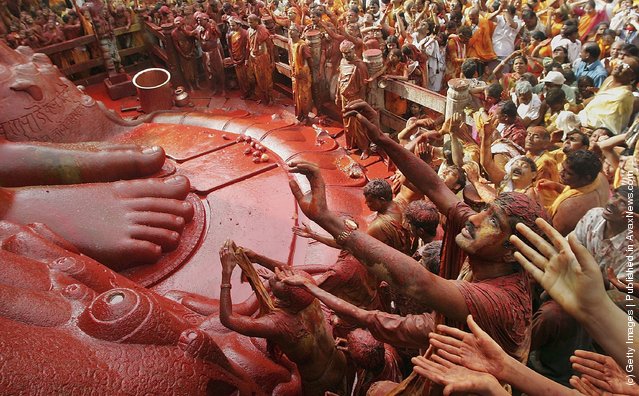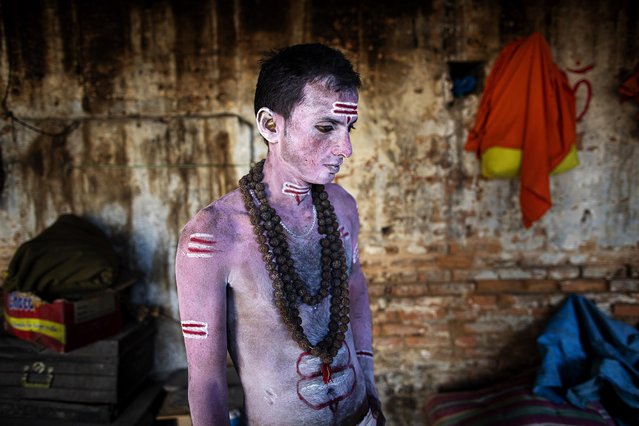
A Sadhu, Hindu holy person, prepares himself by smearing ashes on his body during the Maha Shivaratri festival at the Pashupati Temple in Kathmandu, Nepal, 11 March 2021. The Maha Shivratri festival, which is celebrated on 11 March, sees Hindu devotees, from across the country and neighboring India, gather to celebrate the birthday of Lord Shiva, the Hindu god of creation and destruction, by offering special prayers and fasting. (Photo by Narendra Shrestha/EPA/EFE)
24 Apr 2021 08:39:00,post received
0 comments

